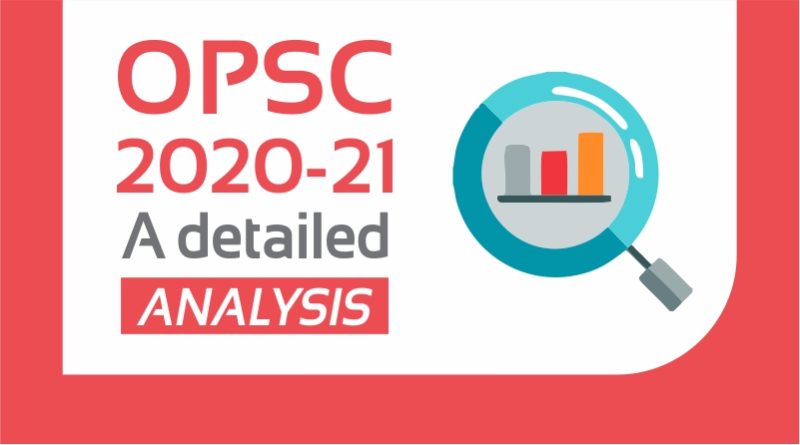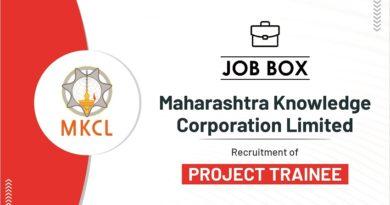OPSC 2020-21: A detailed Analysis
Odisha Public Service Commission (OPSC) conducts the Civil Services Examination for entry-level appointments to the various civil group A and Group B services of Odisha. Through the OPSC exam, the commission recruit candidates for Administrative, Police, Finance, Co-Operative, Employment, Revenue, and Taxation & Accounts Services. As per the official notification of OPSC 2020-21 vacancies have been floated for the recruitment of Asst. Executive Engineer (Civil) in Group – ‘A’ of Odisha Panchayati Raj Engineering Service under the Panchayati Raj & Drinking Water Department.
Table of Contents
- Exam Pattern
- Exam syllabus
- Syllabus of Preliminary examination
- Syllabus of Main written examination
- Paper II Specialized Paper (Civil Engineering)
- Building Materials
- Estimation, Construction Planning and Management
- Water Resources and Hydraulic Engineering
- Environmental engineering
- Geotechnical Engineering
- Transportation Engineering
- total number of vacancies
- Previous Cutoff
- Eligibility Criteria
What is the Exam Pattern of OPSC 2020-21 exam?
Selection criteria includes Written Test (Preliminary and Main written examination) & Viva Voce test. Preliminary examination shall be of one paper of 100 objective type questions of multiple choice holding 100 marks with negative marking of 0.25 for every wrong answer. The exam duration is 1.5 hours.
Main Examination shall be of following two papers of 150 each and 300 marks. The time duration for main examination is two and half hours each with objective type questions of multiple choice with a negative marking of 0.5 for every wrong answer.
- General Studies including basic sciences and General Awareness/ knowledge. -300 marks
- Specialized Paper relating to the stream of Civil Engineering-300 Marks
Viva Voce shall be of-75 marks
What is the Exam syllabus for OPSC 2020-21?
Syllabus of Preliminary examination:
| S.no | Subject | Marks |
|---|---|---|
| 1 | Engineering Mechanics | 10 |
| 2 | Strength of Materials | 10 |
| 3 | Structural Analysis | 10 |
| 4 | Concrete Structure | 10 |
| 5 | Steel Structure | 10 |
| 6 | Solid Mechanics | 10 |
| 7 | Fluid Mechanics | 10 |
| 8 | Irrigation | 10 |
| 9 | Transportation Engineering | 10 |
| 10 | Survey | 10 |
| Total | 100 |
Syllabus of Main written examination:
Part 1- General Science-200 marks
| S.no | Subject | Marks |
|---|---|---|
| 1 | Physics | 20 |
| 2 | Chemistry | 20 |
| 3 | Biology | 20 |
| 4 | Information Technology | 20 |
| 5 | Nuclear Science | 20 |
| 6 | Computer Technology | 20 |
| 7 | Defence Technology | 20 |
| 8 | Space Technology | 20 |
| 9 | Geology | 20 |
| 10 | Agriculture | 20 |
| Total | 200 |
Part 2- General Awareness/Knowledge-100 marks
- History of Modern India and Indian Culture (20 Marks)
History of Modern India:
- History of India since 1857
- Important personalities who shaped the Freedom Movements in Odisha and India.
- Social reform Movements.
Indian Culture: (20 Marks)
- Indian Culture from ancient times to modern times.
- Temple architecture of Odisha.
- Socio-culture developments in Odisha.
Geography of India: (20 Marks)
- Physical, economic and social geography of India
- Odisha’s Physiography and Drainage system
- Odisha’s natural Resources- Water, Forest and minerals, climates, Natural Calamity (Flood, Tsunami, Super Cyclone, Global warming etc.)
Indian Polity: (20 Marks)
- Constitution of India
- Political system of India
- Government and politics in Odisha
- Panchayat Raj Institutions (PRIs) in Odisha.
India and the world: (10 Marks)
- Foreign affairs
- External security and relate matters
- Nuclear policy
- Indians abroad
Indian Economy: (10 Marks)
- Planning, economic development, economic reforms and development of the Corporate Sector in India.
- Economic and Trade issues
- Role and functions of IMF, World Bank and WTO V Reserve Bank of India-its role and functions.
- Odishan Economy: Development during the post Reform Period.
Paper II Specialized Paper (Civil Engineering) – 300 marks
- Solid Mechanics: Elastics constants, plane stress, plain strain, Mohr’s circle, combined stress; Elastic theories of failure; simple bending, shear; Torsion of circular and rectangular sections and simple members. Bending Moment and Shear Force in statically determinate beams.
- Structural Analysis: Analysis of determinate structures-different methods including graphical method. Analysis of indeterminate skeletal frames- moment distribution, slope deflection, stiffness and force methods, energy methods, Muller- Breslau principle and application. Plastic analysis of indeterminate beams and simple frames- shape factors. Basic concepts of matrix method of structural analysis. –
- Design of Concrete Structures: Limit state design for bending, shear, and axial compression and combined forces. Codal provisions for slabs, beams, walls and footings. Principles of prestressed concrete design, materials, methods of prestressing, losses. Design of simple members.
- Design Of Steel Structures (Based on Limit state method): Analysis and design of tension and compression members, Column bases, Connections-simple and eccentric beam-column connections. Plate girders and trusses.
Building Materials and Building Construction:
Building Materials:
- Cement- Components, different types, setting times, strength. Cement Mortar. Ingredients, proportions, water demand, mortars for plastering and masonry.
- Concrete- Importance of W/C ratio, Strength, ingredients including admixtures, workability, testing for strength, non-destructive testing, mix design methods.
- Bricks- Types, Indian Standard classification, absorption, saturation factor, strength in masonry.
Building Construction:
Types of Foundations, Brick masonry, Stone masonry, Floorings, Causes and prevention of cracks in buildings, Damp proofing, Special maintenance of buildings.
Estimation, Construction Planning and Management:
Preliminary estimate, Detailed estimate, Specifications and cost analysis. Bar chart, Linked bar chart, Work-breakdown structures, Activity-on- arrow diagrams, critical path, probabilistic activity durations, Event-based networks, PERT networks: Time-cost study, Resource allocation.
Water Resources and Hydraulic Engineering
- Irrigation Engineering: Consumptive use of water, irrigation system, water demand assessment; Storages and their yields, ground water and well hydraulics; Waterlogging, drainage design; Design of rigid boundary canals, Lacey’s and Tractive force concepts in canal design, lining of canals; Sediments transport in canals; Forces acting on gravity dams and their design, Design of head works, distribution works, falls, cross-drainage works, outlets; River training.
- Hydrology: Hydrological cycle, precipitation ad related data analyses, probable maximum precipitation, unit hydrograph and synthetic unit hydrographs; Evaporation and transpiration; Floods and their management, Design Flood, Streams and their gauging; Routing of Floods; Capacity of Reservoirs.
- Fluid mechanics: Fluid properties, Pressure, thrust, Buoyancy; Flow Kinematics; Integration of flow equations; Flow measurement; Relative motion; Moment of momentum; Viscosity, Boundary layer and control, Dimensional Analysis, Flow development, losses in pipe flows, Pipe networks, Flow measuring equipment and structures.
- Open Channel Flow: Momentum and Energy principles in Open channel flow, Types of flow, Flow sections and properties; Normal flow, Gradually varied flow, Hydraulic jump.
Environmental engineering
- Water Supply Engineering: Sources of supply, design of intakes, Estimation of demand; Water quality standards; Primary and secondary treatment, detailing and maintenance of treatment units; Conveyance of treatment units; distribution systems of treated water, leakages and control; Institutional and industrial water supply.
- Waste water Engineering: Urban rain water disposal; Quantity and characteristics of waste water, Collection of waste water, Primary, Secondary and tertiary treatment of waste water, Sludge disposal, effluent discharge standards, Institutional and industrial sewage management.
- Solid Waste Management: Characteristics, Generation, Collection and Transportation, engineered systems of solid waste management (reuse, recycle, recovery, treatment and disposal). Design and Management of landfills.
- Air and Noise Pollutions: Air pollution- sources and impacts, air pollution controls, standards and limits. Noise pollution- impacts of noise, permissible limits, measurements and control of noise pollution.
Geotechnical Engineering
- Soil Mechanics: Fundamental definitions and interrelationships; Properties and Classification of soils, permeability and seepage, Effective stress principles, Shear strength, Consolidation, Compaction, stress distribution in soils.
- Foundation Engineering: Types of foundations, Foundation design requirements, Shallow foundations-bearing capacity, settlement analysis in sands and clays, Deep foundations- pile types, dynamic and static formulae, load carrying capacity of piles in sands and clays, group action, negative skin friction, Earth pressure theories, effect of water table, layered soils, Stability of slopes, Sub-surface investigations-scope, drilling bore holes, sampling, penetration tests, plate load tests, geophysical tests.
Transportation Engineering
- Highway Engineering: Geometric design of highways, testing and specifications of paving materials, design of flexible and rigid pavements. Read More >>
- Traffic Engineering: Traffic characteristics, theory of traffic flow, intersection design, traffic signs and signal design, highway capacity.
- Surveying: Principles and classification of surveys, mapping concepts, Coordinate systems, measurement of distance and directions, Leaving, Theodolite, traversing, Contours, Plane table surveying, Errors and adjustments, Curves, Total station, Concepts of Global Positioning System; Photogrammetry and Remote Sensing concepts.
Note*
The above-mentioned syllabus is in respect to OPSC 2020-21 notification for the recruitment of Asst. Executive Engineer (Civil) in Group – ‘A’ of Odisha Panchayati Raj Engineering Service under the Panchayati Raj & Drinking Water Department.
What are the total number of vacancies in notification of OPSC 2020-21?
There are total number of 210 vacancies as follows:
| Sl. No. | Category | No of Vacancies |
|---|---|---|
| 1 | UR | 105 (35-w) |
| 2 | SEBC | 24 (08-w) |
| 3 | SC | 34 (11-w) |
| 4 | ST | 47 (16-w) |
| Total | 210 (70-w) |
What was the previous cutoff for OPSC?
Preliminary Exam:
| Category | Male | Female |
|---|---|---|
| UR | 225.325 | 200.050 |
| SEBC | 216.090 | 188.850 |
| SC | 184.205 | 170.235 |
| ST | 156.775 | 141.550 |
Main Exam:
| Category | Qualifying cutoff (Odia & English) |
|---|---|
| UR | 29% (87marks) in each subject |
| SEBC | 28% (84 marks) in each subject |
| SC | 23% (69 marks) in each subject |
| ST | 20% (60 marks) in each subject |
What is the eligibility criteria for OPSC?
Candidate must have possessed a Degree in Engineering (Civil) from any University or Institution recognized by the Government or he/she must be an Associated member of the Institution of Engineers of India.
What is the Age limit for OPSC?
A candidate must have attained the age of 21 years and must not be above the age of 32 years on the 1st day of Jan 2020 i.e. he/she must have been born not earlier than 2nd January 1988 and not later than 1st Jan 1999. Age relaxation for candidates in different categories for availing relaxation and reservation benefits will be as per Government rules prescribed for the purpose.
What is the examination fee?
A candidate is required to pay a non-refundable and non-adjustable fee of Rs.500/- (Five Hundred Only). Candidates belonging to Schedule Caste/ Schedule Tribe of Odisha only and persons with disability (whose permanent disability is 40% and more) are exempted from payment of this fee.
What will be place of examination?
The Written examination will be held in Cuttak. It may also be held at Bhubaneswar, Balasore, Berhampur and Sambalpur depending on the number of aspirants applied from the respective zones as decided by the commission.
Important Dates:
| Online Registration/Re-Registration and Online Payment of Registration fee at www.opsc.gov.in | 26.08.2020 until 25.09.2020 (11:59 PM). |
| Submission of Online registered application | 26.08.2020 until 05.10.2020 (11:59 PM) |
| Admit Card Release Date | Will be updated on www.opsc.gov.in |
| Examination Date | Will be updated on www.opsc.gov.in |
| Result Declaration Date | Will be updated on www.opsc.gov.in |
Important Contact Details
- Facilitation Counter over Telephone No. 0671-2304141/2305611 & Extn.- 227
- All Candidates are requested to visit opsc.gov.in for important notices and updates.
OPSC Prelims Online Course for Assistant Engineer Exam
Dear Aspirants,
Your preparation for GATE, ESE, PSUs, and AE/JE is now smarter than ever — thanks to the MADE EASY YouTube channel.
This is not just a channel, but a complete strategy for success, where you get toppers strategies, PYQ–GTQ discussions, current affairs updates, and important job-related information, all delivered by the country’s best teachers and industry experts.
If you also want to stay one step ahead in the race to success, subscribe to MADE EASY on YouTube and stay connected with us on social media.
MADE EASY — where preparation happens with confidence.

MADE EASY is a well-organized institute, complete in all aspects, and provides quality guidance for both written and personality tests. MADE EASY has produced top-ranked students in ESE, GATE, and various public sector exams. The publishing team regularly writes exam-related blogs based on conversations with the faculty, helping students prepare effectively for their exams.





Other state eligible for opsc assistant engineer exam or not please explain it…
Please tell me sir . i am graduated in environment engg. Which iss Equivalent to Civil
Am i eligible or not?
Sir I am graduated in 2020 but due to Corona situation I got my certificate after last date of application of aee civil .But i am eligible to appear preliminary exam. Kindly tell me shall I eligible for viva after clearing main exms??